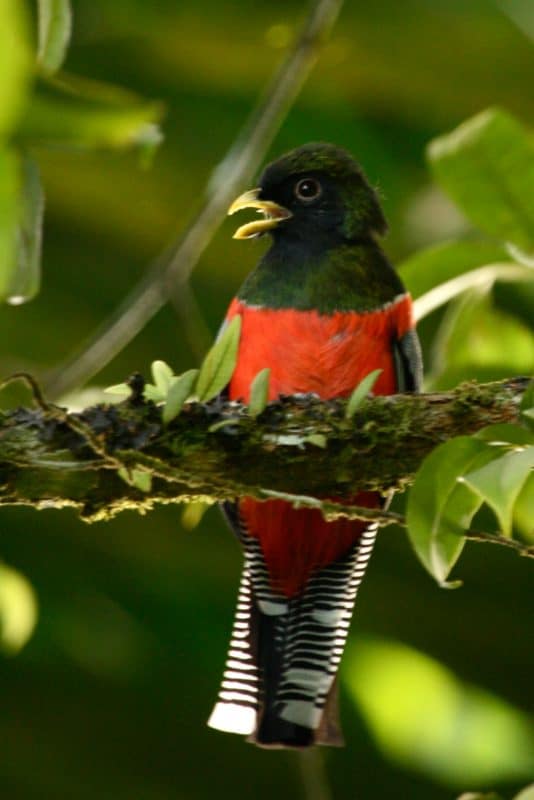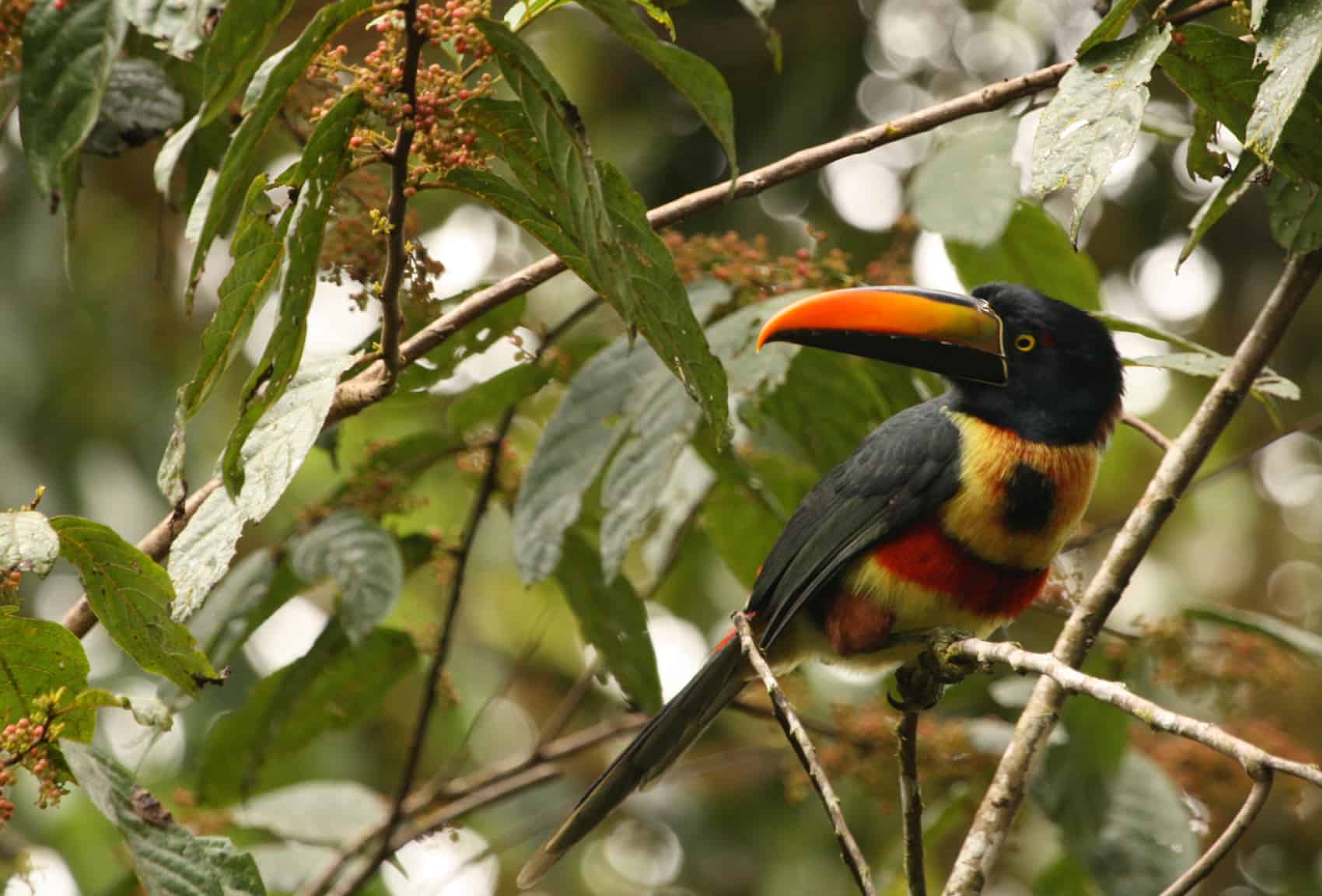Older birds on the evolutionary tree are struggling more than the younger members of their feathered family when it comes to adapting to areas affected by agriculture. According to a study published in the magazine Science, forest-dwelling birds in Costa Rica, like the trogon or resplendent quetzal, are especially struggling to adapt to areas converted into intense monocultures, like sugarcane and pineapple.
Luke Frishkoff, a doctoral student at Stanford University, said the research was based on studies over 12 years looking at how to best preserve biodiversity in the tropics given that agriculture isn’t going away if humans want to keep eating.
The study observed that birds with a longer evolutionary history were generally less able to successfully adapt to areas where people had cleared forests for agriculture, even if the farms had a variety of flora. Researchers observed the greatest variety of birds was in native forests, but that figure dropped by 15 percent in diversified farmland — plots with a several types of crops or other vegetation, like trees — and 40 percent in monocultures.
Birds in the trogon family, ant birds, and ground-dwelling birds were among those most affected by human agriculture. Because forest-affiliated birds tend to be older and less successful adapting to diversified and monoculture agricultural development, the study concluded that preserving forests is essential to protect evolutionary history.

Biodiversity can be a boon to farmland productivity if farmers take steps to preserve habitats. Birds that thrived in agricultural lands also tend to be more closely related than the more evolutionarily distinct forest-dwelling birds.
“Think about it in terms of the stock market,” Frishkoff told The Tico Times in a telephone interview. “You want a diversified portfolio.”
Frishkoff said the same logic works for the environment. Biodiversity plays an important role in agriculture with different species offering different ecological services to humans. One important contribution for agriculture is pest control, for example. The more kinds of birds in a given area means that humans could rely on them for a variety of services, like gobbling up several kinds of pests instead of just one.
Frishkoff pointed out that biological diversity, something for which Costa Rica is famous, also has its own aesthetic value and contributes to the country’s famous wildlife tourism.
Planting trees, “living barriers” of other vegetation to separate crops, or using a combination of crops on the same land were some steps that farmers could take to support more biodiversity on their land.
“A little bit goes a long way to shift the balance between a total biological wasteland and something that some species are able to use,” Frishkoff said.
The Stanford University lab will next look at why it is that some birds can more successfully adapt to these altered environments. The team hopes to develop a model that could help predict how birds would fare in different kinds of human-affected environments.






